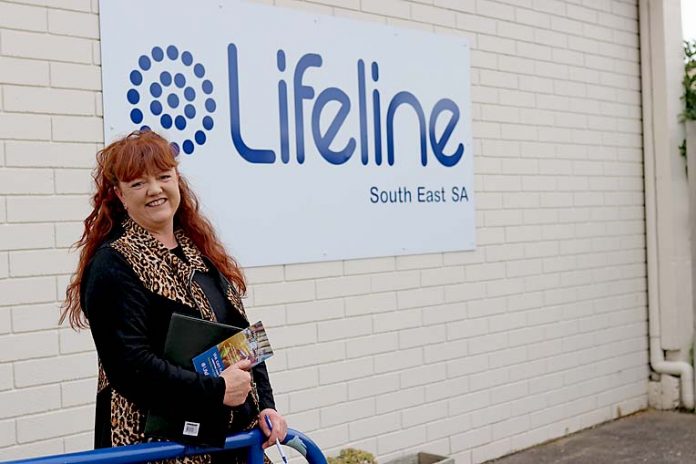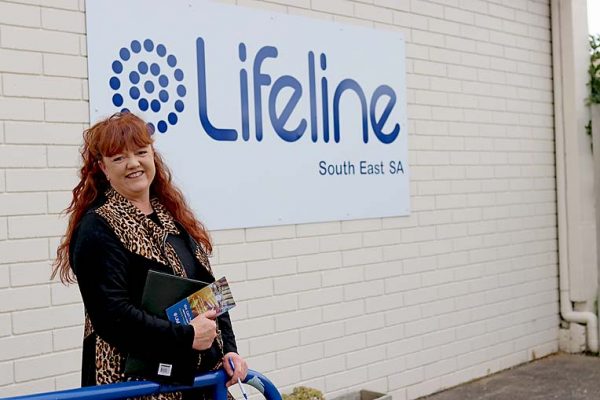

LIFELINE South East is adapting to support the community’s mental health during the COVID-19 pandemic, which has caused unprecedented levels of anxiety and emotional distress in its wake.
The not-for-profit organisation reported its busiest month on record in March, receiving 88,770 calls nationally to its support line – around 3000 calls daily – with around 40pc of calls from the last week related to the coronavirus.
Lifeline South East chief executive Leah Griffin said the mental health toll caused by the global pandemic was something nobody had ever experienced before.
“We expect – and all indications show – that COVID-related phone calls will continue to rise,” Ms Griffin said.
“This is bigger than the impact of Australia’s bushfires and recent drought.”
Ms Griffin said the Limestone Coast’s headquarters had noticed a huge jump in demand recently.
“Before this pandemic, loneliness was one of the main reasons people would call Lifeline,” Ms Griffin said, concerned calls relating to isolation would continue to grow.
“People who are already feeling the impact of social isolation are going be feeling it more than ever.”
Ms Griffin reiterated the importance of seeking help when in need.
“There is no shame, we want to remind anyone who is feeling overwhelmed that Lifeline are always going to be there to listen,” she said.
“We need to recognise when it is all too much. Sometimes a break is necessary.
“We encourage anybody feeling heightened anxiety, emotional distress or need to confidentially talk with somebody who will listen without judgement to contact Lifeline.”
With many people housebound due to choice or government restrictions, Ms Griffin said Lifeline had developed strategies to help people cope through social isolation.
“One idea could be setting up a gratitude tree, where each person posts a message or sends a text to other members to share something they are grateful for,” she said.
“We also encourage people to find a friend of group they can set daily challenges with. This could include a healthy habit, mindful practice or creative pursuit.
“Another option is setting dates and times to watch a television show simultaneously with somebody. You are not sharing the couch, but you can share a mutual conversation.”
For those working at home, Ms Griffin said logical strategies such as swapping pyjamas for work-wear, keeping to routine and doing physical exercise were great ways to maintain a healthy mindset.
“After Australia’s recent history with the drought and bushfires, people have been left vulnerable to mental health concerns,” she said.
“I also think people are not used to physical distancing, it is instinct to shake people’s hands after all these years of using manners.
“Everybody can get bogged down with the negative stuff, so it is good to see when browsing online people are looking on the brighter side.”
Although face-to-face consulting has been limited, Ms Griffin said Lifeline South East was still available to help.
“Everybody has been amazing and has adapted and we will continue to do what we can to accommodate people,” she said.
“There are no silly questions and people can ring the front office and be pointed in the right direction.
“Now is the time to all come together, roll up our sleeves and reach out. It might not be tomorrow, but things will get better eventually.”
Lifeline’s crisis support service remains up and running and will continue as normal.
The organisation’s Care Ring initiative – involving a team of volunteers who make daily phone calls to a list of isolated residents – also continues.
The Limestone Coast Regional Gambling Help Service remains open for anybody concerned about their own, or someone else’s gambling behaviour.
To contact Lifeline, phone 131 114 at anytime or from 6pm to midnight people can text 0477 131 114.
The public can also chat online to volunteers by visiting www.lifeline.org.au/cris-chat from 7pm until midnight.







